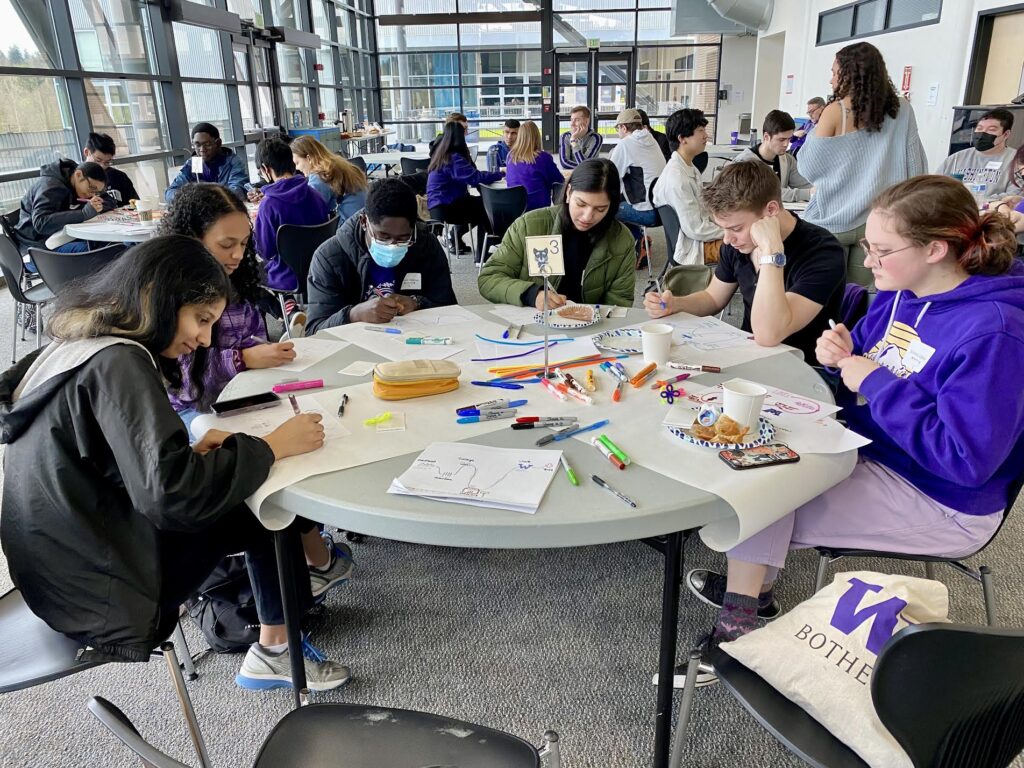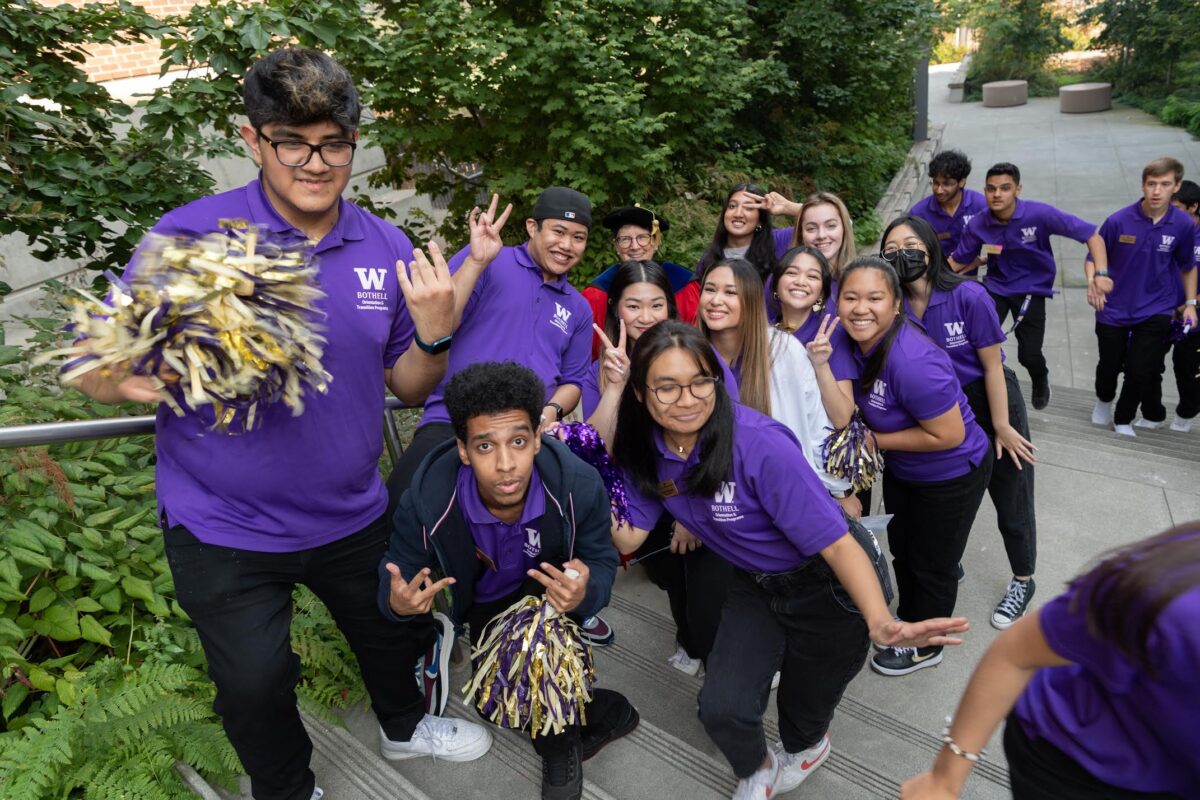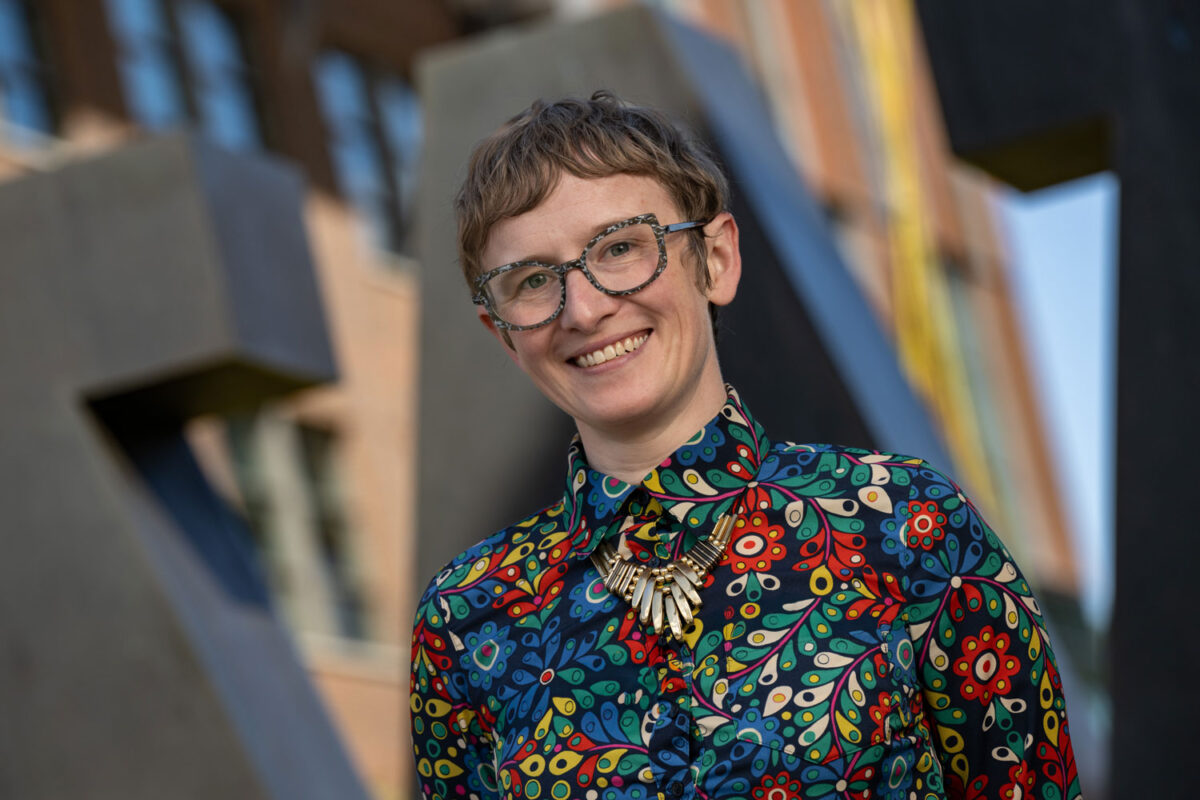Peer-to-peer coaching has gained traction as a practical approach to personal and professional development in recent years. Unlike traditional mentorships, where guidance flows from an experienced individual to one less experienced, this model of coaching emphasizes mutual learning and growth between equals.
To leverage the power of this new model to support student engagement and success, the University of Washington Bothell launched its Peer Coaching Program in 2020 under the guidance of Terry Hill, director of Orientation & Transition Programs.
“The coaches help students achieve strong academic results and offer unique involvement opportunities,” said Emily Leonard, transition program manager and head of the Peer Coach Program. “We know finding communities can be difficult, so coaches also host social events and connect students with club activities on campus.”
An opportunity that keeps giving
First-year students in the program each get a coach — a student leader — who meets with them during summer orientation and then continues to support them throughout autumn quarter. They hold one-to-one sessions at least once a month to build relationships, facilitate personal goal setting and help the first-year students find needed resources.
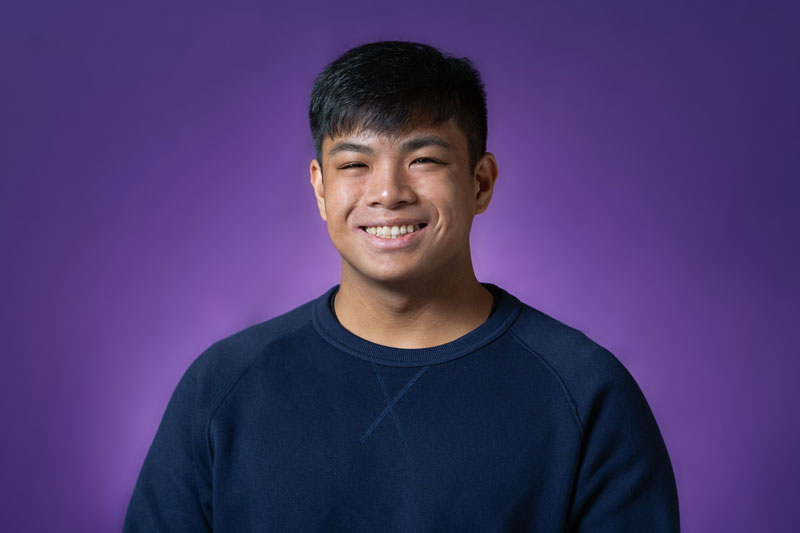
Prior to becoming coaches, the student leaders undergo comprehensive training during spring and summer quarters, covering topics such as leadership development; public speaking and communication; and diversity, equity and inclusion.
“The skills students gain will not only benefit them as coaches,” Leonard noted, “but will also help them stand out in the job market once they graduate.”
Coach Bastien Orbigo, a senior majoring in Computer Science & Software Engineering, didn’t have to wait for graduation to see the benefits. He is now well versed in the GROW model he has been trained to integrate into his coaching meetings: goal, reality, options and way forward. This framework helps coaches formulate the right questions, set goals and develop action plans with their students — and has proven just as helpful for Orbigo’s academic and professional success.
Help for others that circles back
When Orbigo began an internship as a software development intern at T-Mobile last summer, the GROW model was part of the training. His familiarity with GROW set him apart from the other interns and gave him a head start on his work.
He was quickly able to plan out his entire 12 weeks of the internship, including different milestones to not only keep him on track but also to put him ahead of deadlines. “The plan helped me to stay centered and to welcome the benefit of making mistakes, rather than fearing them,” he said.
“I had seen the model work well with my students,” Orbigo noted, “but it was really cool to have a chance to use it for myself. As a CSSE major, I would not have expected that peer coach training would apply to my career.
“Working as a peer coach is just as beneficial for your own development as it is for the first-year students.”
Working as a peer coach is just as beneficial for your own development as it is for the first-year students.
Bastien Orbigo, senior, Computer Science & Software Engineering
Students who become coaches
Riley Esteban agrees. A junior majoring in Earth System Science, she’s had the experience of having a peer coach as a first-year student and being a coach herself. “I actually wanted to become a coach because I had such an amazing experience with mine,” she said.
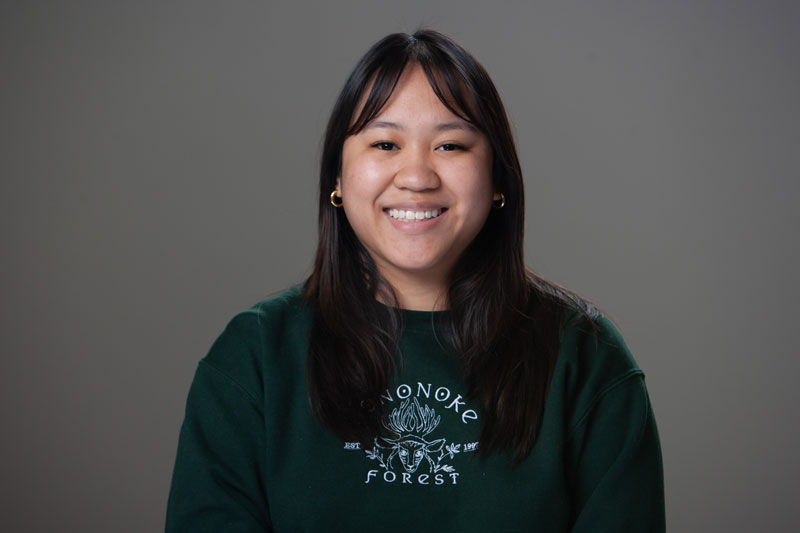
Esteban explained that as peers support one another by sharing their challenges and providing feedback, they also develop a sense of camaraderie and empathy. This trust-based relationship creates a safe space for open dialogue, vulnerability and personal growth.
“I was able to open up with my coach in ways I wouldn’t have been comfortable if I was talking to a faculty or staff member,” she said. “I knew my coach had faced similar challenges and experiences, having been where I was only a year earlier.”
One of the things Esteban shared with her coach was her struggle to make new friends. “I was very quiet and introverted, and it was hard for me to put myself out there,” she said. “My coach encouraged me to join a club, and so I got involved with Womxn in STEM.
“Joining the club had a huge impact on my college experience. It introduced me to a community of people who shared a similar passion and interest.”
Skill sets that drive success
Uplifted by her peers in the club, Esteban gained a new confidence and, the following year, decided to become a peer coach. “I went into it with the purpose of setting up first-year students for success but was surprised at just how much the training set me up for success, too,” she said.
She noted that her public speaking skills have improved dramatically since starting the program. “As a coach, I had to present at orientation to a group of nearly 100 students, which was quite a lot,” she said. “I also hosted a number of group sessions with my students. I had to get comfortable speaking in larger crowds.
“This skill will be extremely helpful outside of the coaching program. Since I am going into a scientific field, I will need to be able to present my findings to an audience.”
Numbers that prove impact
Data from a survey sent to all first-year students at the end of autumn quarter 2023 show that the program has made a significant impact on these students.
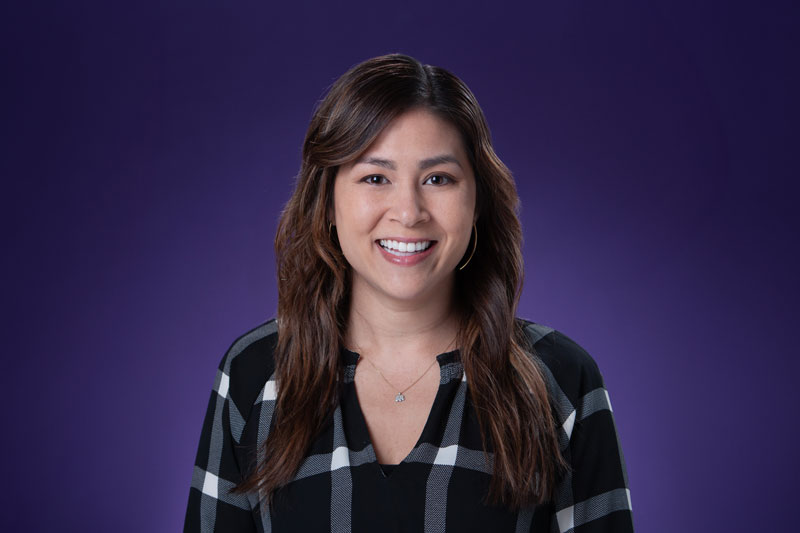
“Ninety-three percent of students are utilizing their peer coach which shows us that there is definitely a need and demand,” Leonard said. “We have the data to support that students’ grade point averages go up after meeting with their peer coaches — which helps to increase retention.”
One of the questions on the survey also asked where the first-year students found community or belonging in their first quarter.
“Overwhelmingly the majority of them said their peer coach, similar to Riley’s experience,” Leonard said. “We also asked, ‘Did your peer coach help you feel more prepared for the next quarter?’ and more than 90% this year said they were more prepared and more confident.”
Pride in the program
Success statistics about peer coaches are impressive, too, Leonard added, noting that half of UW Bothell’s Husky 100 students in 2023 were peer coaches.
“For those who may not know, the Husky 100 recognizes 100 students across the Bothell, Seattle and Tacoma campuses who are making the most of their time at the University. To have our peer coaches represented in that group is just amazing.”
Looking at the peer coaching program as a whole, Leonard said she feels an immense sense of optimism and pride. “We have had a lot of really big wins, and it has been a joy to see this program come to life under Terry’s vision,” she said.
“Seeing all that the program has done in the past four years is truly inspiring — and I can’t wait to see what the next four years will bring.”
